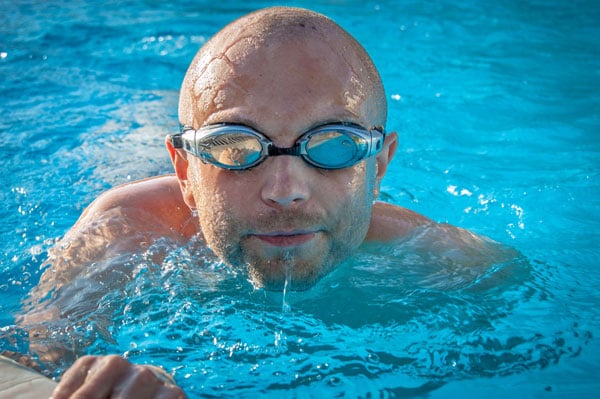The team at Allied Eye understands how much fun swimming during the summer can be. Whether you’re swimming in a pool at your home, a local pool or at a water park, it’s important to protect your eyes from the risks the water can cause to your eye health.
Swim at Your Own Eye Risk
When a swimming pool is cleaned, many different chemicals are used to help kill and disinfect any bacteria lurking in the water. However, these same chemicals that are used to treat the water and keep it safe can also cause harm to your eyes. Symptoms like redness, itchiness, inflammation and even chemical-related pinkeye can occur. Therefore, it’s important to take preventive action when swimming in the water.
For starters, wear swimming goggles. Swimming goggles are also needed for swimming in oceans, rivers and lakes, too, since bacteria and animal waste can be living within those waters.
Goggles are the best way to protect your eyes while swimming, but they don’t always prevent all water from getting to the eyes. If you wear contacts, it’s best to remove them while swimming, since goggles aren’t a fool-safe method of keeping the eyes dry. This is for a couple reasons: For one, contacts are extremely easy to lose. Plus, it is also easy for bacteria to live on your contacts, which makes you more prone to eye infections from the water.
If goggles are not available, make sure you close your eyes while swimming under water. However, it’s best to just keep your head above water, if possible.
Take note that conjunctivitis, particularly “chemical conjunctivitis,” is extremely common among swimmers. Therefore, if you experience any of the symptoms, such as redness, swollen eyelids, blurred vision or leaky discharge from the eye, be sure to make an appointment with an eye doctor as soon as possible.
Are your eyes stinging or burning? Make an appointment with Allied Eye today so that our highly trained ophthalmologist can take a look at your eyes and decide on the proper treatment plan to get you back quickly to having some fun this summer.


